Moving from Work to Retirement
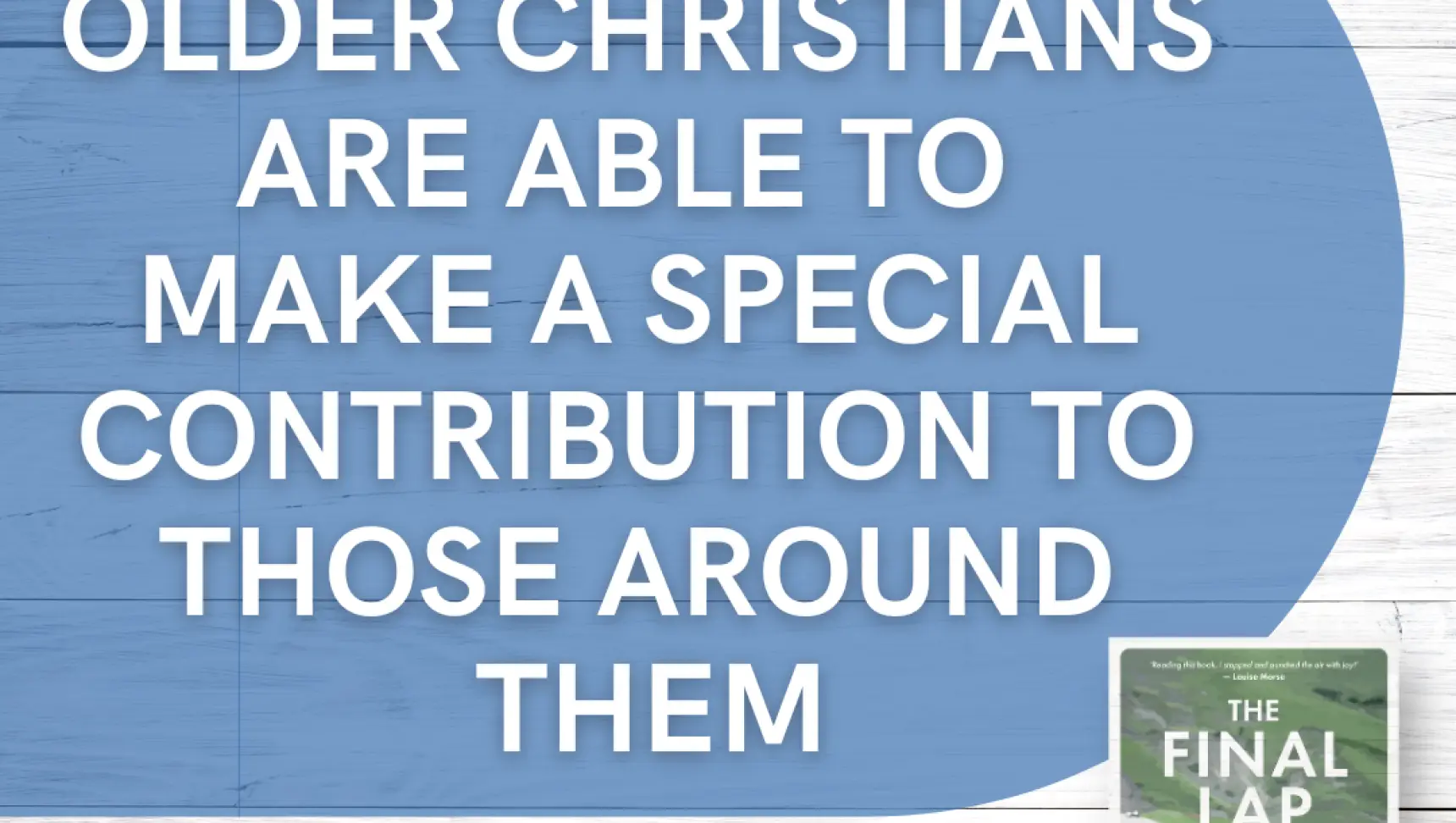
It’s important to stop and think about what an extraordinary period we are living through.
It’s a new idea that in your late 50s or early 60s you can come to the end of your period of paid employment, and yet have another 30 years of healthy life ahead of you. Of course, many won’t have the luxury of early retirement, but most will enjoy a number of years when they no longer have to work. It’s never happened before; we are among the first to face this reality. And it raises huge questions.
Perhaps the most important question it raises for me is, ‘What are old people for?’ After all, there’s an awful lot of us! And as followers of Christ, a related question is ‘What are old people for in the Christian church family?’
As much as the Apostle Paul wanted to be in the presence of his Lord in heaven, he was able to write, ‘to live is Christ … If I am to go on living in the body, this will mean fruitful labour for me’ (Phil. 1:21–22). His desire was to glorify God in this life for as many days as he was given. We should do the same!
If you look at secular ideas of retirement, they largely seem to be, ‘You’ve worked extremely hard for most of your life. And now it’s time to enjoy yourself. You owe it to yourself. Do the things you’ve always wanted to do. Now’s your opportunity.’ In other words, once you have retired you can live the rest of your life in contented selfishness. But in reality, do you want to spend the next 20 or 30 years in contented selfishness? The truth is that we all desire meaning in life, not just recreation, however lovely that can be for a time. We all need something to get up for in the morning. In Philippians 1, Paul desired to go on living so he could love and serve the church. We need direction, goals, purpose. But as our paid work comes to an end and our energies decrease, it can be hard to know where to find the meaning in life we each require.
As we confront the transition from paid employment to the next phase of our lives, we need to find new energy and new purpose. And that energy lies where we can serve others in a way we are passionate about.
As we make the transition from paid employment to retirement, it seems to me that the question ‘What are old people for?’ takes on new relevance.
Here are just a handful of ways older people are able to make a special contribution to those around them:
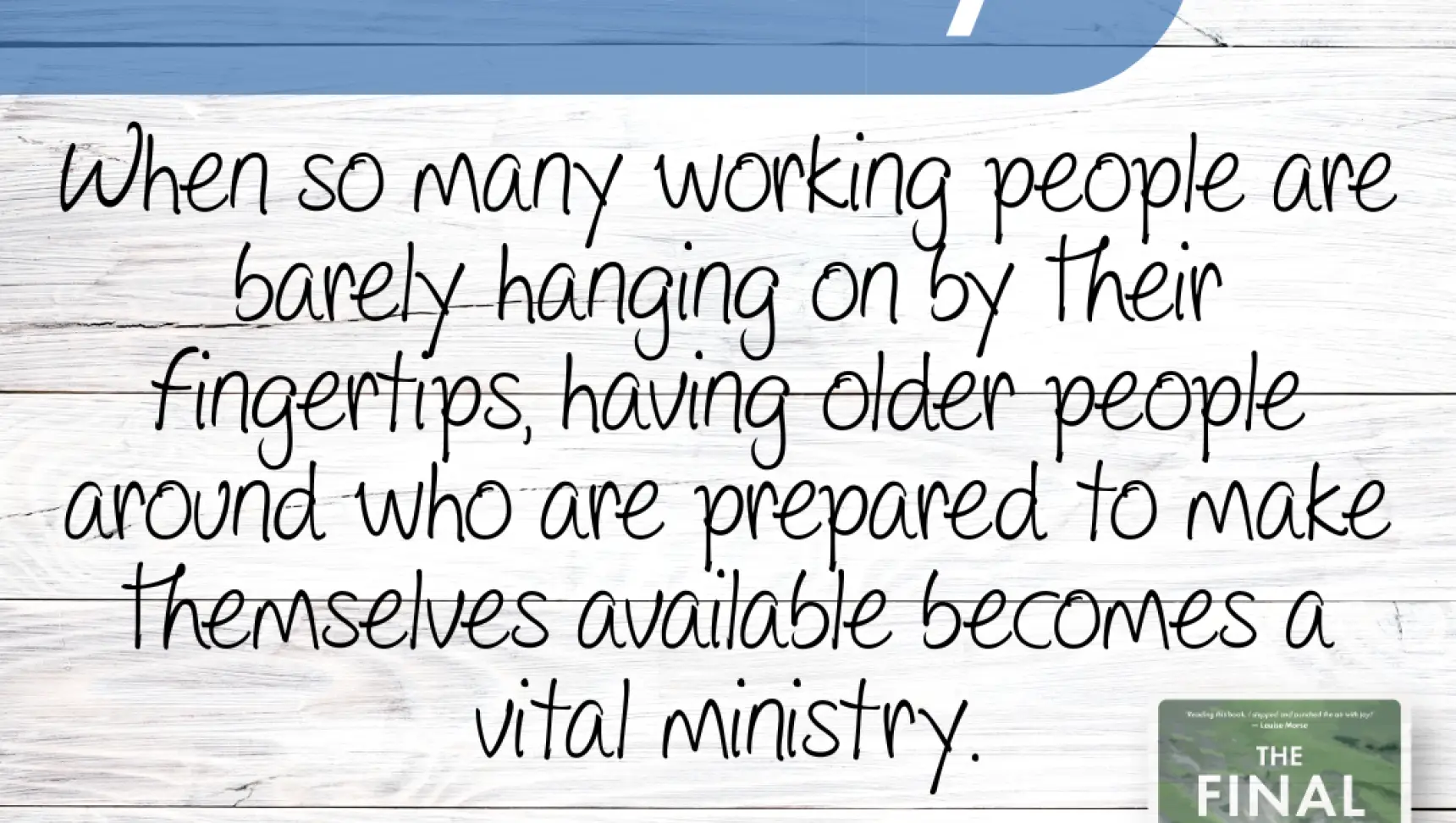
Availability
When we are in the midst of our working lives, making space and time for people can seem almost impossible.
Now that I am no longer in full–time employment, it has become much easier to make myself available to others at short notice. And in our busy, pressurised and demanding world, when so many working people are barely hanging on by their fingertips, having older people around who are prepared to make themselves available becomes a vital ministry.
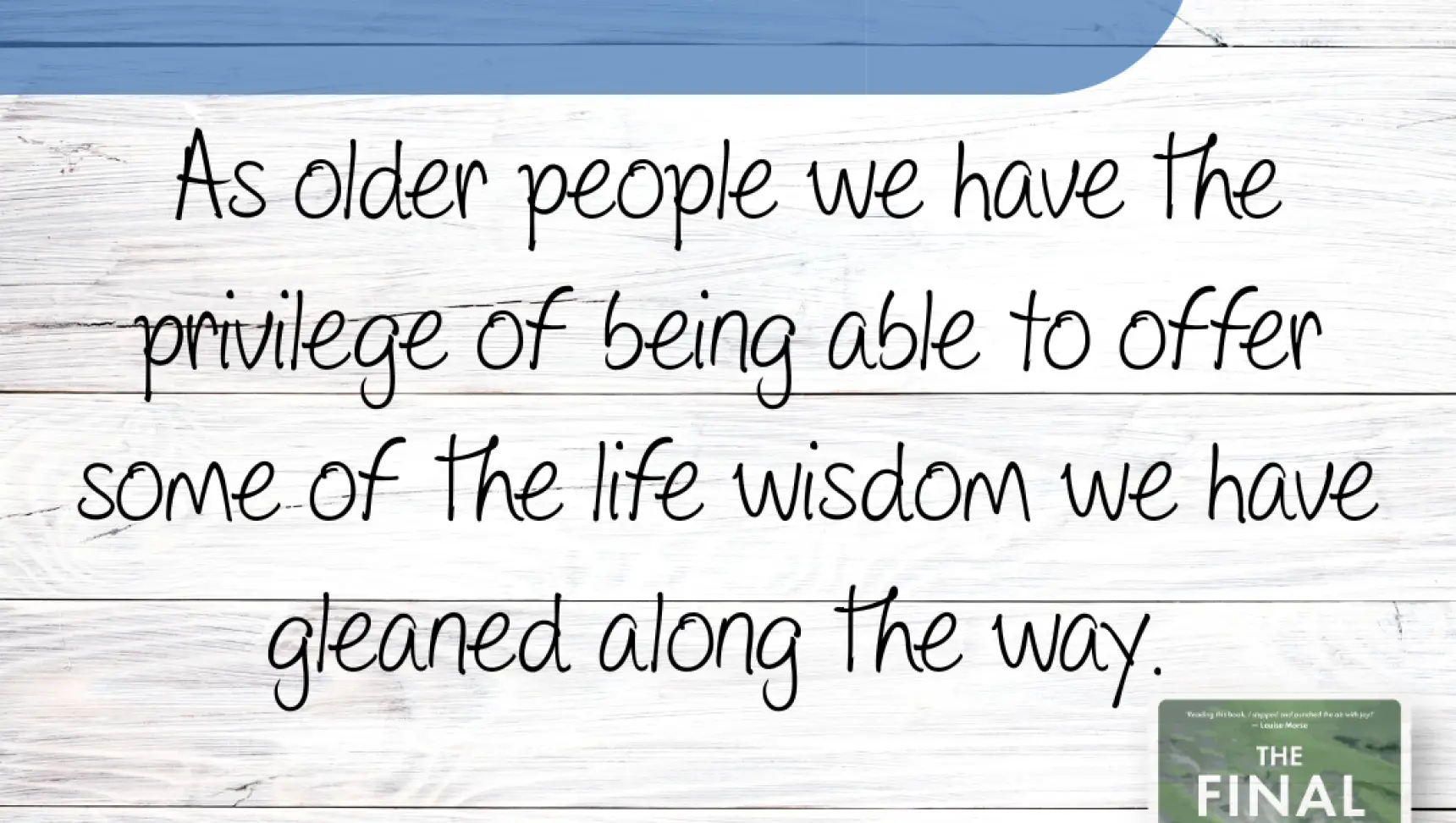
Life Wisdom
It’s often been said that ‘We live life forwards but we understand it backwards.’ And I for one am grateful for the (albeit limited) wisdom and insights that I have gained over the last 70 years of my life. We live in a world which idolises youth and in which so many older people are trying to pretend that they are 25 again. But to be honest I really don’t want to be 25 again! Of course, it would be good to have a body that didn’t ache and get quite so tired, but I’m extremely grateful for what I have learnt since over the past 50 years.
As older people we have the privilege of being able to offer some of the life wisdom we have gleaned along the way. I think it can be particularly helpful to share from our own experiences the ways that God has blessed us in spite of our failures and weaknesses.
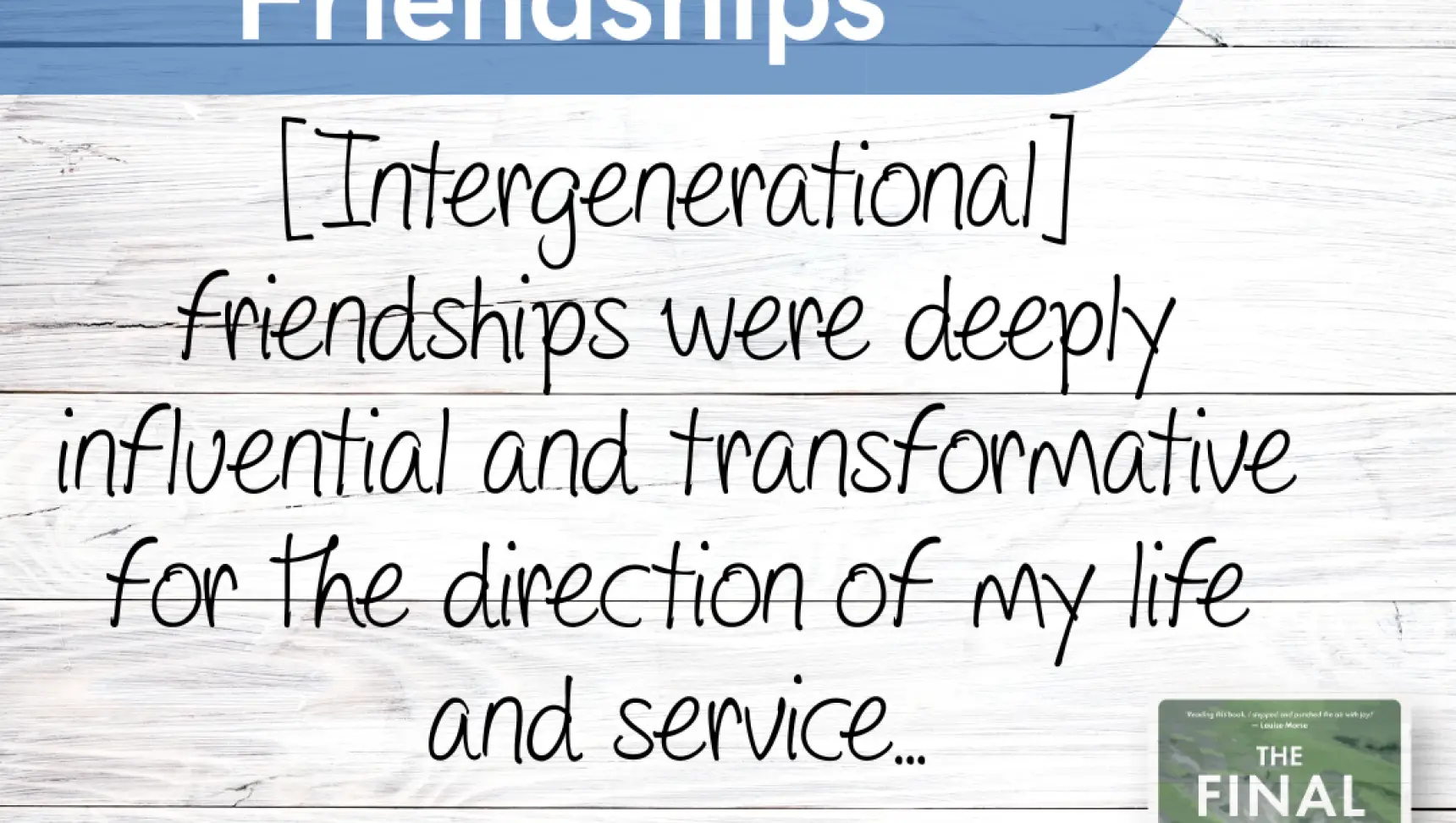
Intergenerational Friendships
As a younger man I had the immense privilege of developing close friendships with a number of older people who chose to reach out to me. Looking back I can see that these close friendships were deeply influential and transformative for the direction of my life and service, inspiring and moulding me into the person that I have become.
It seems as though many older people have become very reluctant to reach out in friendship to younger people in their churches or communities.
‘I’m not at all sure I’ve got anything to offer. I don’t get half the things they talk about. I don’t understand social media, dating apps, computer games. I don’t understand the kind of lives they live.’
It’s easy to conclude that we have nothing to offer.
But that isn’t true.
Young people need friends with life wisdom, people who are available, who will listen to them and love them and pray for them. So can I gently suggest perhaps you could take the initiative? Don’t wait to be asked. All it takes is to offer a cup of coffee or a walk together.
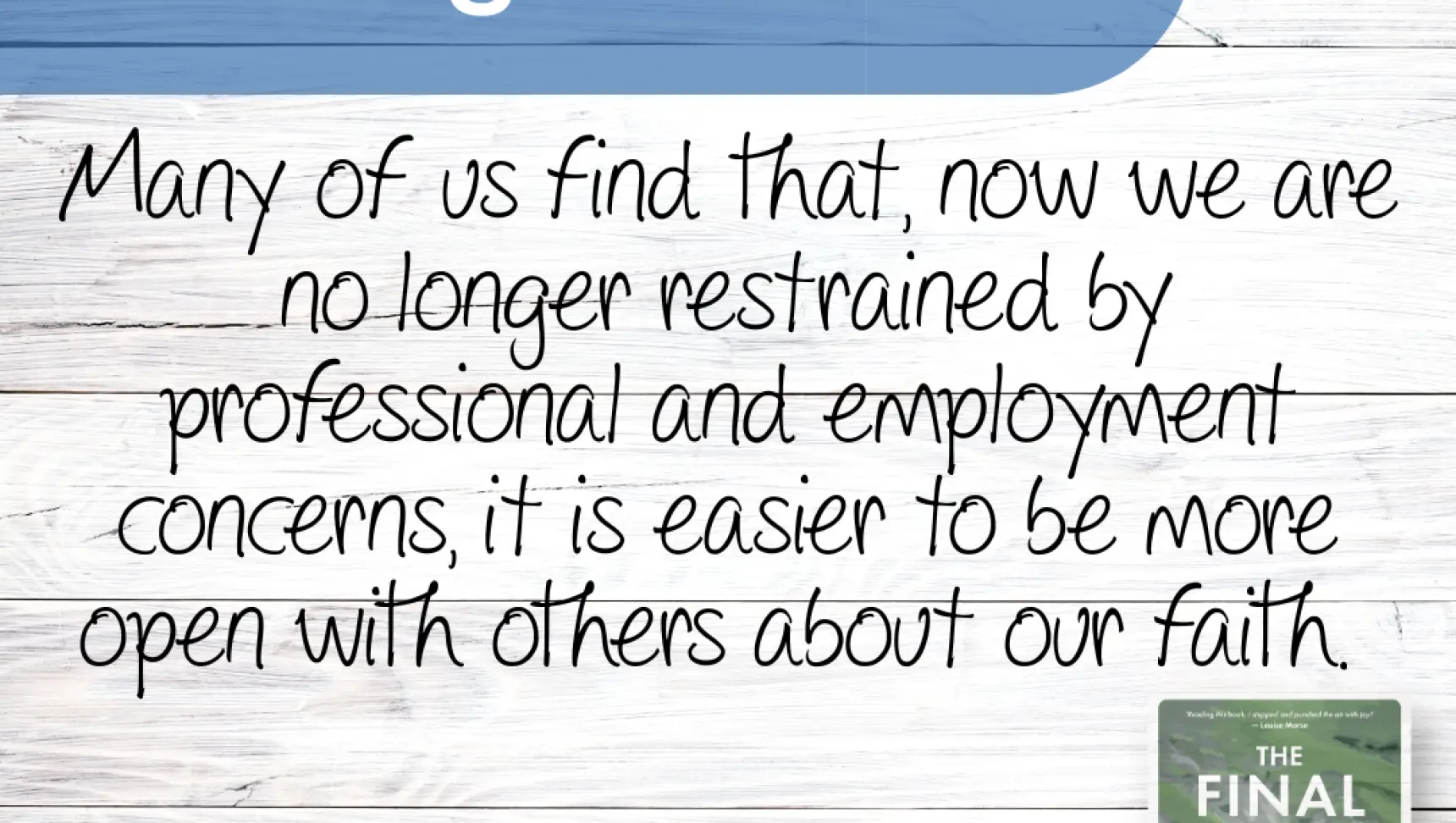
Sharing our Faith
Many of us find that, now we are no longer restrained by professional and employment concerns, it is easier to be more open with others about our faith. Despite the rising life expectancy, older people are frequently confronted with their mortality and for some this has led to a greater openness to talking about deeper issues than in younger years – the meaning of life, the reality of guilt, the possibility of forgiveness and what happens beyond the grave.
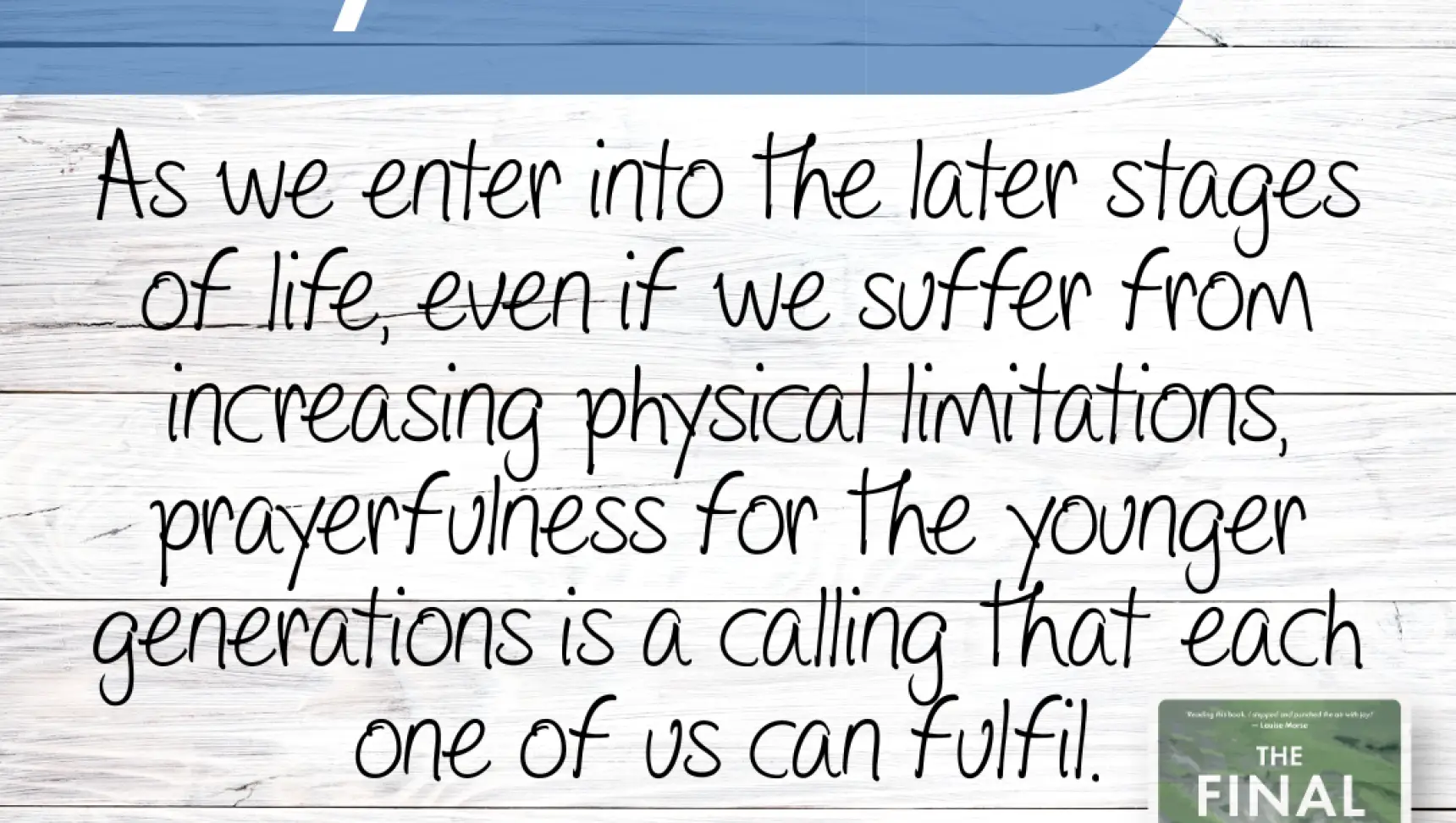
Prayerfulness
Once retired, most of us now have more time and opportunity to learn more about praying for others. As we enter into the later stages of life, even if we suffer from increasing physical limitations, prayerfulness for the younger generations is a calling that each one of us can fulfil.
No runner wants to hit the wall and spend the last six miles of the marathon dragging themselves along. But unlike running, hitting retirement doesn’t have to mean a long–lasting slog for the remainder of the race. We can recover from the potentially unsettling change and go on to flourish, running our final miles with purpose and joy.
Extract taken from The Final Lap.
John Wyatt is Emeritus Professor of Neonatal Paediatrics at University College London. He authored Dying Well and Matters of Life & Death: Human dilemmas in the light of the Christian Faith.